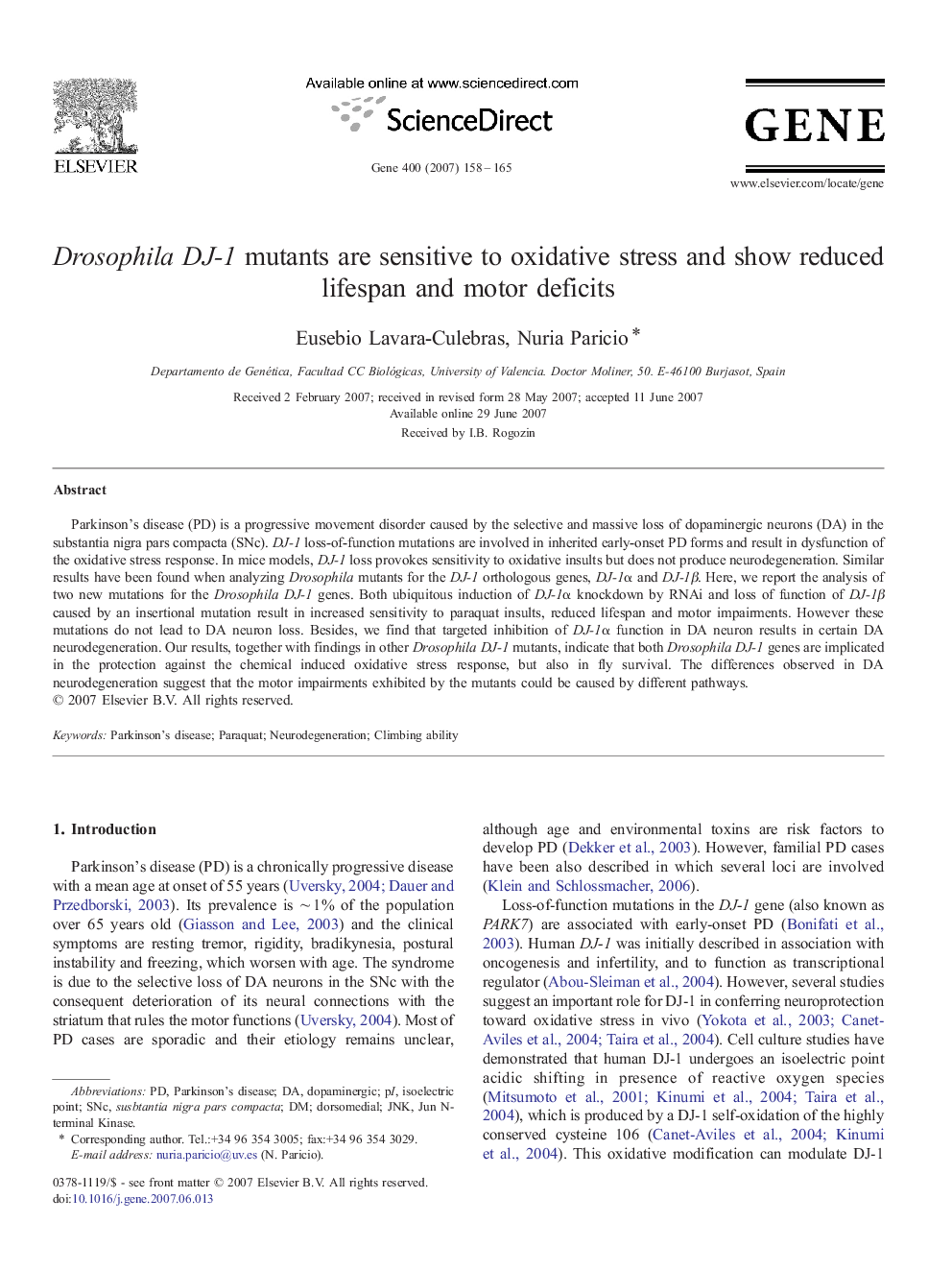| Article ID | Journal | Published Year | Pages | File Type |
|---|---|---|---|---|
| 2819446 | Gene | 2007 | 8 Pages |
Parkinson's disease (PD) is a progressive movement disorder caused by the selective and massive loss of dopaminergic neurons (DA) in the substantia nigra pars compacta (SNc). DJ-1 loss-of-function mutations are involved in inherited early-onset PD forms and result in dysfunction of the oxidative stress response. In mice models, DJ-1 loss provokes sensitivity to oxidative insults but does not produce neurodegeneration. Similar results have been found when analyzing Drosophila mutants for the DJ-1 orthologous genes, DJ-1α and DJ-1β. Here, we report the analysis of two new mutations for the Drosophila DJ-1 genes. Both ubiquitous induction of DJ-1α knockdown by RNAi and loss of function of DJ-1β caused by an insertional mutation result in increased sensitivity to paraquat insults, reduced lifespan and motor impairments. However these mutations do not lead to DA neuron loss. Besides, we find that targeted inhibition of DJ-1α function in DA neuron results in certain DA neurodegeneration. Our results, together with findings in other Drosophila DJ-1 mutants, indicate that both Drosophila DJ-1 genes are implicated in the protection against the chemical induced oxidative stress response, but also in fly survival. The differences observed in DA neurodegeneration suggest that the motor impairments exhibited by the mutants could be caused by different pathways.
